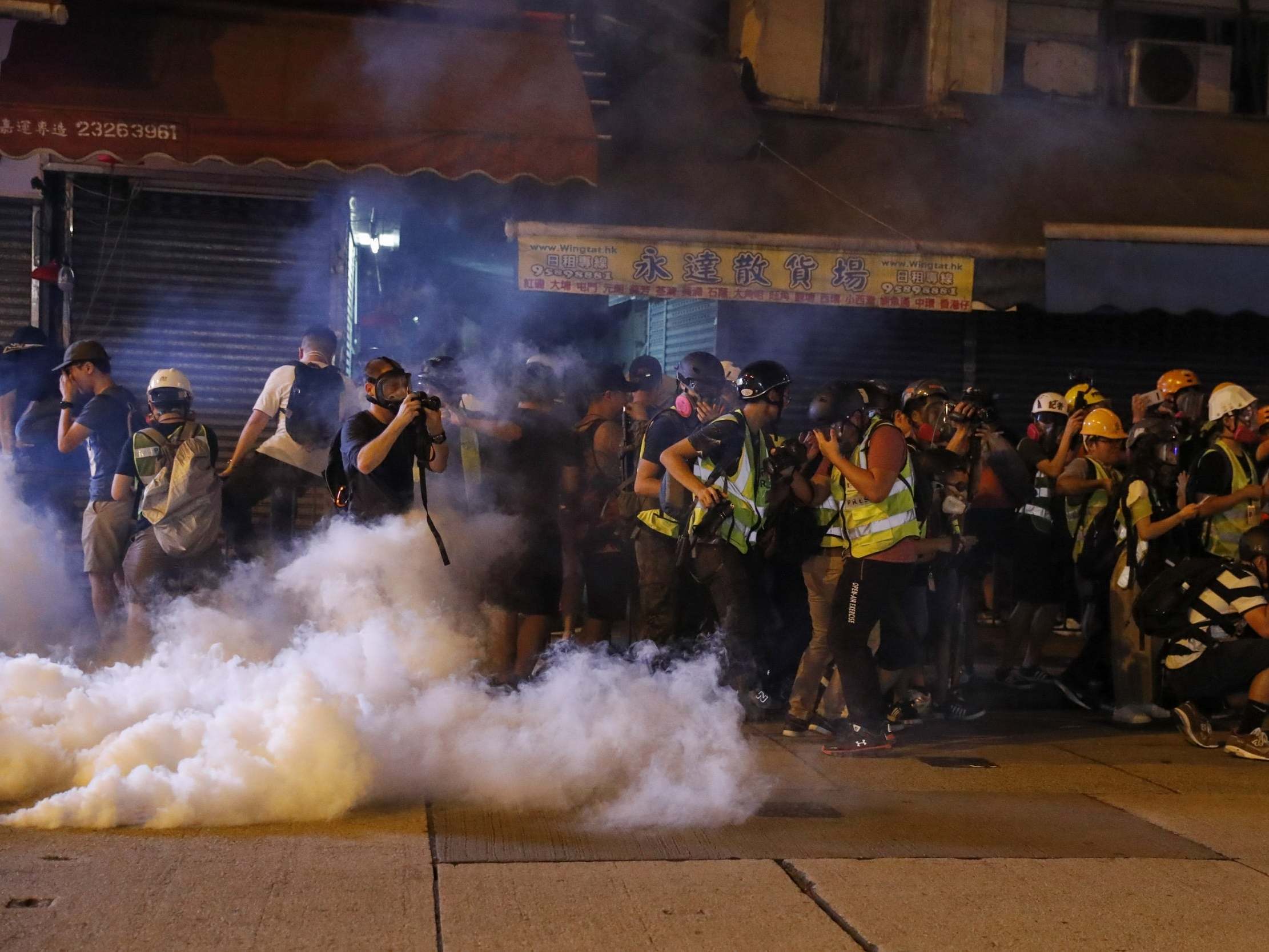Hong Kong protests: Police fire tear gas and rubber bullets at crowds as violence breaks out
Anti-government protests enter 14th week despite leader scrapping unpopular extradition bill

Your support helps us to tell the story
From reproductive rights to climate change to Big Tech, The Independent is on the ground when the story is developing. Whether it's investigating the financials of Elon Musk's pro-Trump PAC or producing our latest documentary, 'The A Word', which shines a light on the American women fighting for reproductive rights, we know how important it is to parse out the facts from the messaging.
At such a critical moment in US history, we need reporters on the ground. Your donation allows us to keep sending journalists to speak to both sides of the story.
The Independent is trusted by Americans across the entire political spectrum. And unlike many other quality news outlets, we choose not to lock Americans out of our reporting and analysis with paywalls. We believe quality journalism should be available to everyone, paid for by those who can afford it.
Your support makes all the difference.Hong Kong police fired tear gas to disperse crowds at a busy shopping district for the second night running after successfully preventing protesters from blocking access to the city’s airport.
Violence erupted once again after nightfall on Saturday as police fired tear gas into crowds and clashed with protesters, leading to several arrests.
On Friday night hundreds of demonstrators, many masked and dressed in black, attacked metro stations in the Mong Kok district in retaliation to televised scenes of police beating cowering protesters on a metro train.
Earlier on Saturday police succeeded in stopping anti-government protesters from blocking access to the city’s airport as they prepared for a second weekend of disruption.
Officers checked people’s tickets and passports as they headed to the airport in a bid to weed out activists.
Massive but peaceful protests began in June against legislation which would have allowed criminal suspects to be sent to mainland China to stand trial in courts controlled by the Communist Party.
In contrast, Hong Kong has an independent judiciary dating back to British rule.
Hong Kong leader Carrie Lam announced concessions this week to try to end the protests, including formally scrapping the hugely unpopular extradition bill.
But the demonstrations, which are entering their 14th week, have long since broadened into wider calls for democracy and many protesters have pledged to fight on.
Hong Kong returned to China in 1997 under a “one country, two systems” formula that guarantees freedoms not enjoyed on the mainland.
Many Hong Kong residents fear Beijing is eroding that autonomy.
China denies the accusation of meddling and says Hong Kong is an internal affair.
It has denounced the protests, accusing the US and Britain of provoking unrest, and warned of the damage to the economy as Hong Kong faces its first recession in a decade.
The US State Department updated its travel advisory for Hong Kong, warning that US citizens and consular employees had been the targets of a recent propaganda campaign by China “falsely accusing the United States of fomenting unrest”.
The overall risk level remains at the second lowest of a four-level gauge, after it was raised on 7 August to reflect the escalating violence.
Reuters contributed to this report.
Subscribe to Independent Premium to bookmark this article
Want to bookmark your favourite articles and stories to read or reference later? Start your Independent Premium subscription today.
Join our commenting forum
Join thought-provoking conversations, follow other Independent readers and see their replies
Comments